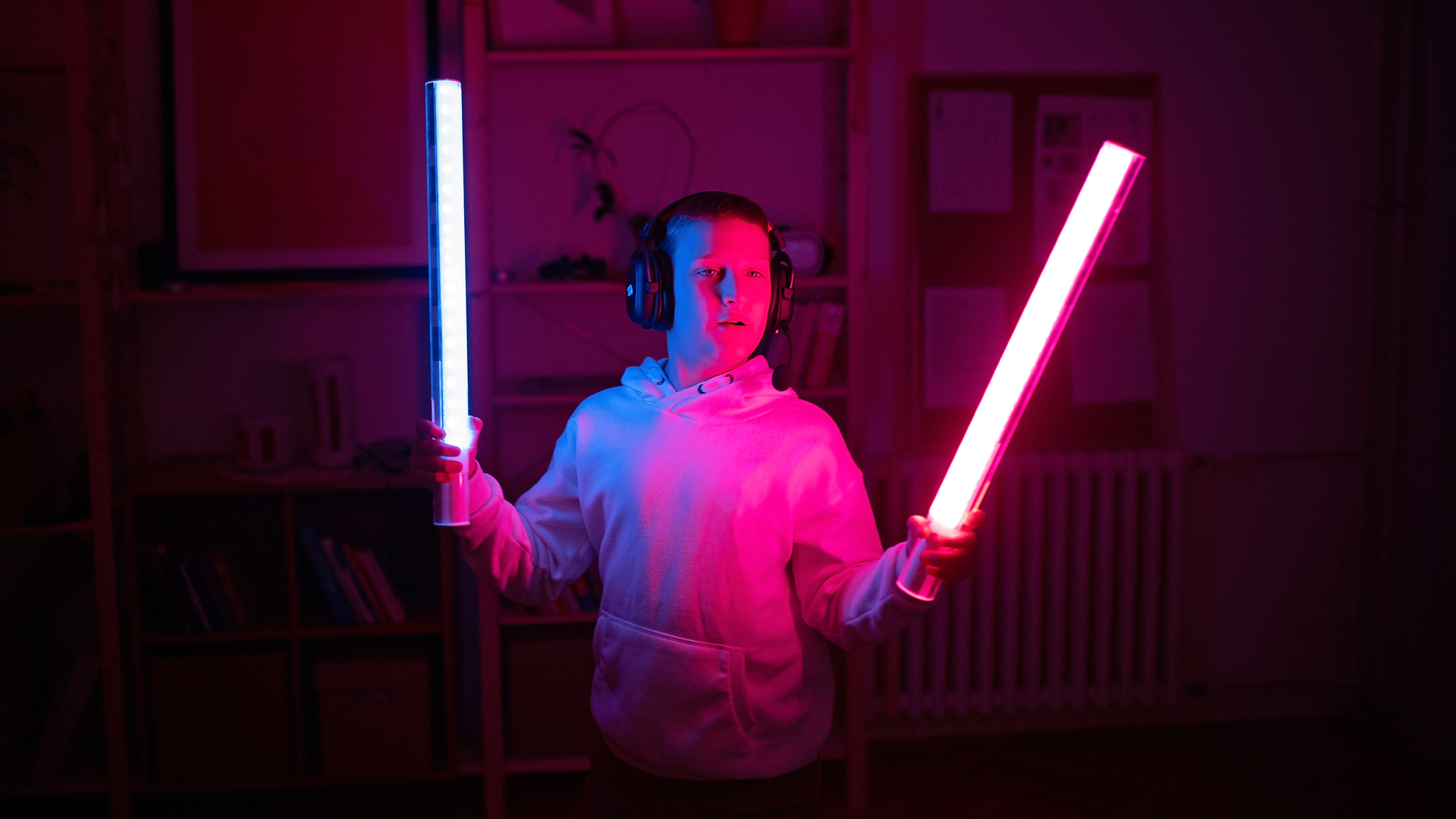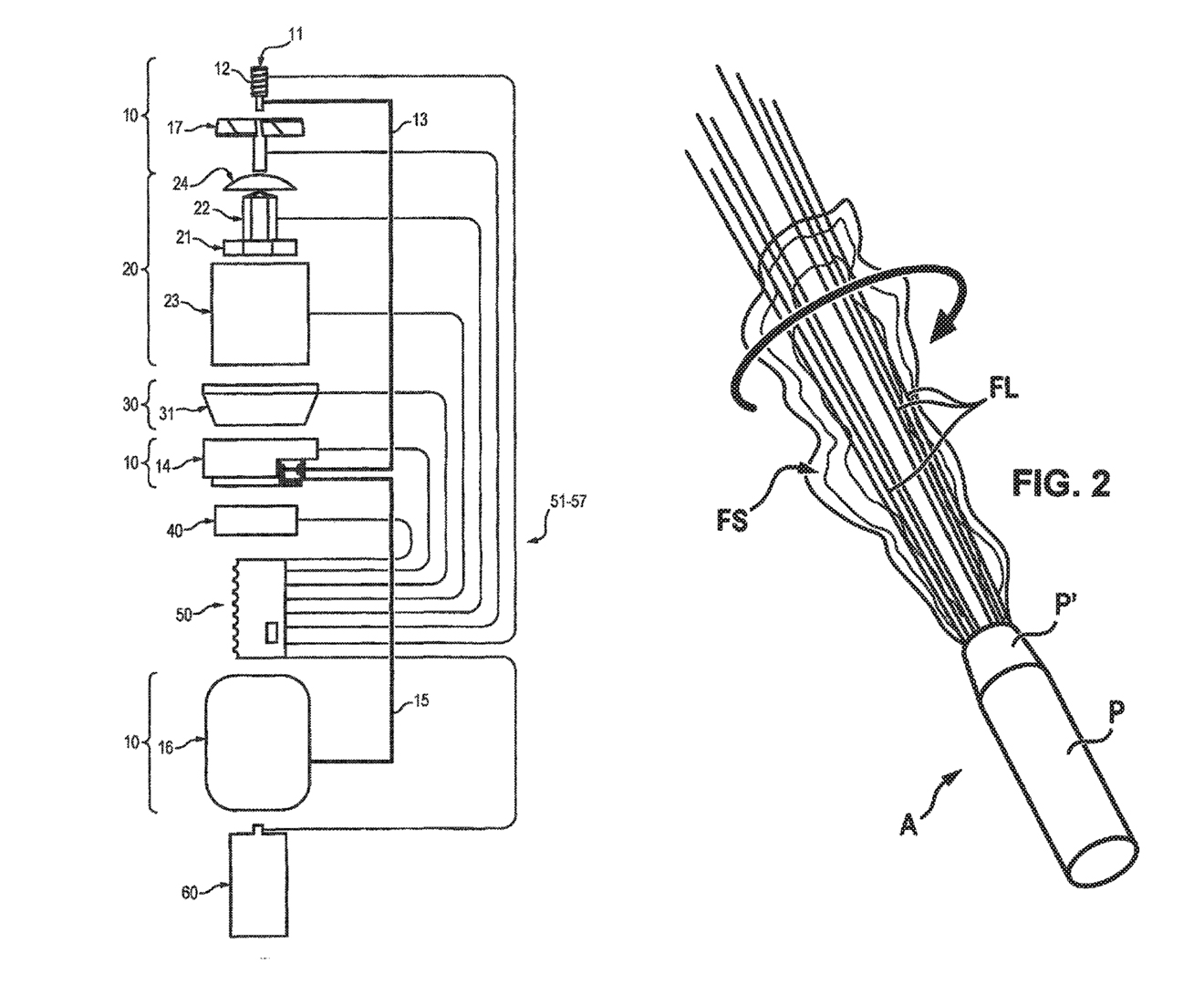I went looking for the inventors building real Star Wars lightsabers and was surprised at what I found
May the Fourth be with your quest to find a real lightsaber

Sign up for breaking news, reviews, opinion, top tech deals, and more.
You are now subscribed
Your newsletter sign-up was successful
21st-century science has all the necessary principles to create a working Star Wars lightsaber, but not the know-how.
A few years ago, Swiss fusion physicist Federico Felici explained in detail to The Science Museum blog how hot plasma contorted into an elongated, 3,100-degree Fahrenheit toroidal cylinder (think of a doughnut stretched into a long tube) by powerful magnets and contained in an insulated handle could make a working lightsaber.
The problem is much of this technology, at least at that pint-sized scale, is theoretical and there are still huge issues to work out like how to keep the plasma beam in one piece. One theory is to use AI (!) to learn plasma fluctuations and use the magnets to counter them on the fly.
So now we have a microcomputer and a fusion system that somehow generates massive amounts of fusion energy inside a device no larger than a standard flashlight. Oh, and it needs tiny magnets that are exponentially more powerful than their size would indicate.
In the real world, that's no moon

In my quest to find a single working or under-development lightsaber, I turned to the US Patent and Trademark Office where I found a pair of intriguing patent applications. Both mention lightsabers and each tries to make something workable. However, sadly, neither is intended to be the real deal, just workable props.
Joel Pinkham’s “Light Saber Blade” (AKA Patent Application US 2023/390661 ), published in December 2023, looked promising. However, as I read it, I realized that Pinkham was simply suggesting better housings for toy lightsabers that use lights and extended tubes to fake the Lightsaber experience. His innovation is a new way to connect disparate lightsaber toy elements.
Slightly more promising was Michael Chau’s clunkily-named “Apparatus for generating three-dimensional visual effects and smoke-generating device for such an apparatus.” Right, that sounds nothing like a Jedi Knight’s go-to weapon, However, in the abstract, Chau writes, “Application in particular to the production of ‘lightsaber’ visual effects.”
Sign up for breaking news, reviews, opinion, top tech deals, and more.

Chau’s idea in the now four-year-old patent application is to build a cylinder with a powerful LED light source, a heating element, and a small fan inside. The heating element would cook up glycerol, which makes dense smoke, while the fan propels that smoke out of the business end of the ‘lightsaber” and the LED light illuminates the gas. The “plume” as Chau described it would look like a “beam of light” similar to the plasma beam out of a real lightsaber.
It’s just a visual effect, but we give Chau points for an impressively innovative approach.
There are, however, a few-not-quite-real lightsabers both for sale and in use that may offer enough sparks and excitement to satisfy most Star Wars and May the Fourth devotees.
I want to be a Jedi like...
YouTuber and engineer Hacksmith built, perhaps, the most famous lightsaber device and maybe the only one that uses what may be a real plasma flame (regular fire can be considered “plasma’ if it’s hot enough and messes with surrounding ions).
As he says in his video, “My team and I make the most realistic and functional lightsabers the world has ever seen.”
His blades burn at a metal-cooking 4,500 degrees Fahrenheit and, as Hackmsith claims, they can “cut through almost anything.”
In his videos, Hacksmith shows off full-sized lightsabers that look like they might satisfy Luke Skywalker or Kylo-Ren. But if you look at the end of the plasma blades, you’ll notice that they look more like blowtorches than blades of light.
The mini ones he sells resemble fancy lighters, but at least the flames can burn in accurate Jedi knight colors. Hacksmith’s last major lightsaber update was almost a year ago. I wonder if they’ll introduce something even more eye-popping in 2024.
When you wish upon a Star Wars
Perhaps the most exciting fake lightsaber comes from the House of Mouse. Last year, Disney, which owns the Star Wars franchise, showed up at the SXSW Conference in Texas and demonstrated a retractable lightsaber that looks and works pretty much like every lightsaber you’ve ever seen in at least Episode IV, V, and VI.
Just about the only record we have of it is a 15-second video in which a Disney exec casually extends and retracts a white lightsaber blade from a metal hilt. It even makes the iconic lightsaber extension sound.
While there were rumors Disney might eventually sell the lightsaber in stores or at least at Galaxy’s Edge in Disney Land and Disney World theme parks, it’s looking like that won’t be the case.
If a blade that generates extreme heat or can cut through metal doors is not a requirement, you could build your own or buy one of the countless screen-accurate lightsaber replicas on the market. The blades are usually made of plastic and embedded with a series of LED lights. Obi-Wan wouldn’t approve but then he’s just a force ghost now, so you do you.
You might also like
- How to watch the Star Wars movies in order: chronological and ...
- You don't have to be a Jedi Master to understand Star Wars: Ahsoka ...
- Star Wars: Skeleton Crew isn't out on Disney Plus yet, but it's already ...
- Early Star Wars Day trailer for Disney Plus' The Acolyte includes a ...
- Star Wars: The Acolyte: Disney Plus release date, trailer, cast, plot ...

A 38-year industry veteran and award-winning journalist, Lance has covered technology since PCs were the size of suitcases and “on line” meant “waiting.” He’s a former Lifewire Editor-in-Chief, Mashable Editor-in-Chief, and, before that, Editor in Chief of PCMag.com and Senior Vice President of Content for Ziff Davis, Inc. He also wrote a popular, weekly tech column for Medium called The Upgrade.
Lance Ulanoff makes frequent appearances on national, international, and local news programs including Live with Kelly and Mark, the Today Show, Good Morning America, CNBC, CNN, and the BBC.

